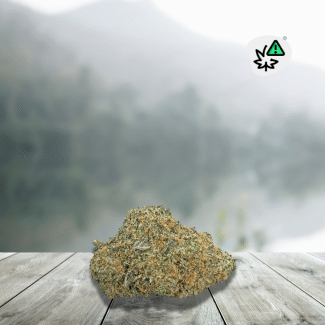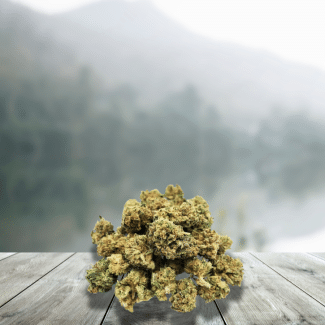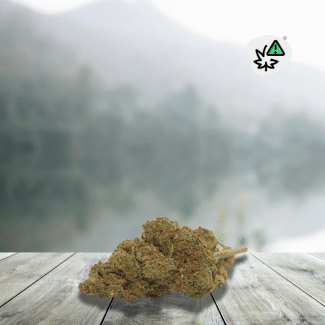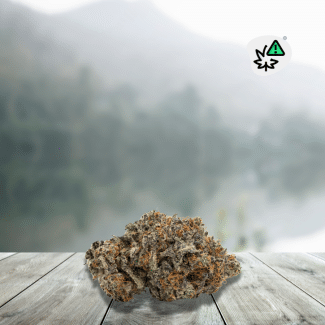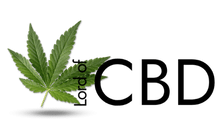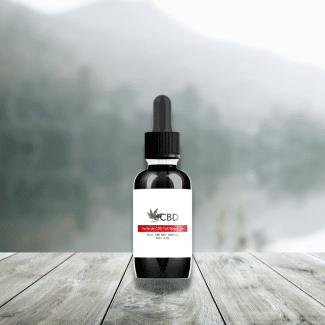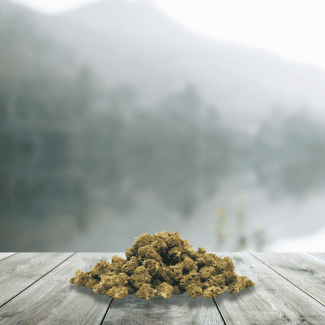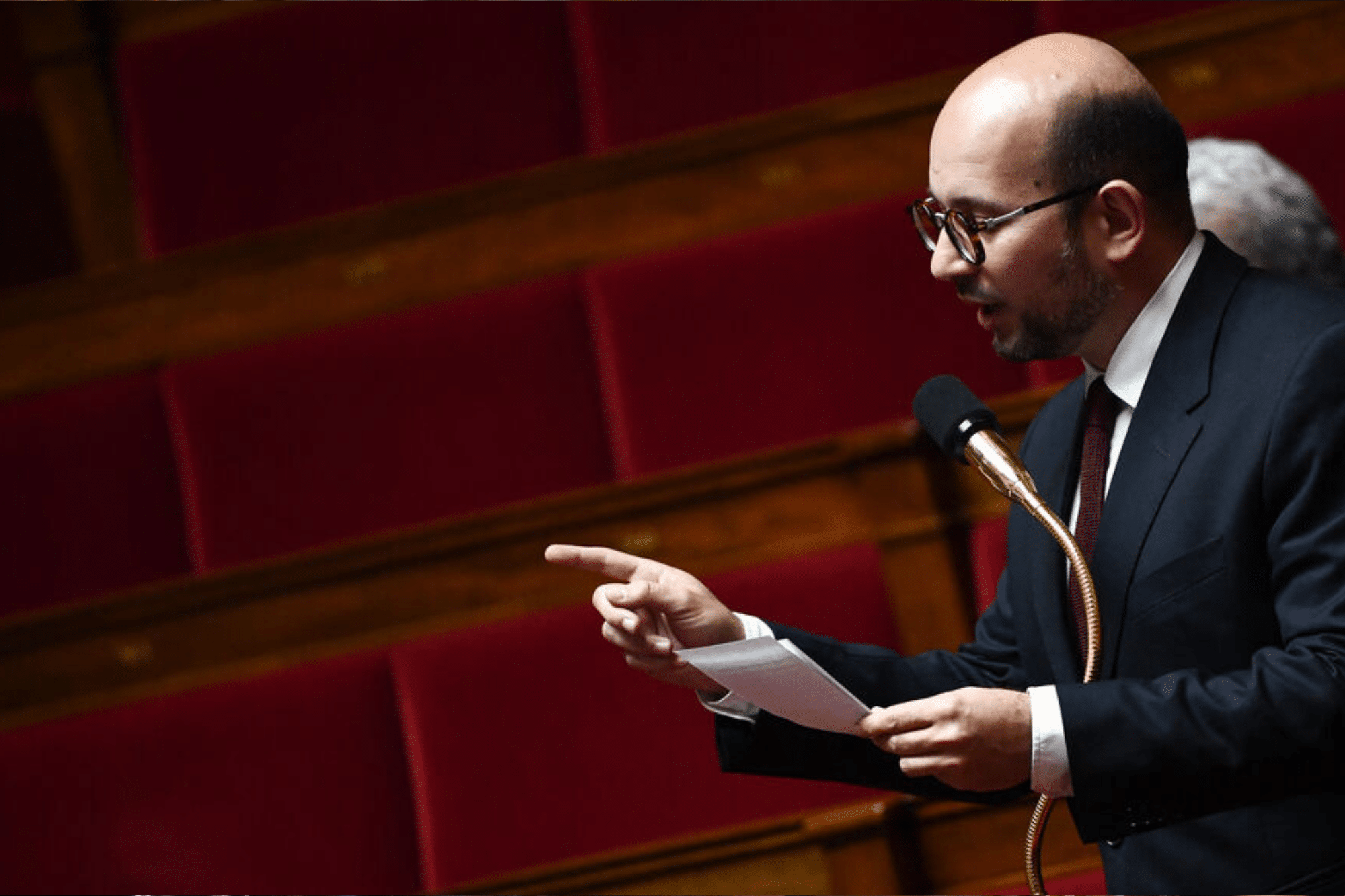
An unusual political duo, composed of Ludovic Mendes (EPR, ex-Renaissance) and Antoine Léaument (La France Insoumise), has just delivered a report that goes against the repressive line defended by certain French political leaders, to Start with Bruno Retailleau. For 17 months, these two deputies heard experts, met with field players and collected data to lead to sixty proposals, including a flagship recommendation: legalize "French" cannabis and decriminalize more broadly the use of drugs, for the sake of public health. The conclusions of their work, made public this Monday, February 17, are likely to feed an intense debate on the future of the drug policy in France.
The two elected officials affirm: the systematic repression of consumers has not brought the expected effects of public health or security. "It has been explaining for 30 years that the drug consumer is a offender, an accomplice of the trafficker, that he has blood on his hands. It has never changed anything, ”says Ludovic Mendes. For his part, Antoine Léaument, a supporter of a deep change of paradigm, claims an approach turned towards prevention, the support of users and the fight against real criminal networks.
This new posture is opposed to the vision of Bruno Retailleau, senator and leader of a hard right which demands hardening of criminal sanctions for consumers. Where Retailleau sees in the user an accomplice offender, the two rapporteurs plead for a public health vision, inspired by the Portuguese example or certain North American models. Overview of the key points of this ambitious report, of its potential repercussions on the legal framework in France and the debates which it will necessarily arouse.
An event report: 17 months of work and 60 proposals
The project required 17 months of research and auditions. The goal: to understand the magnitude of drug trafficking in France, its roots, its consequences, and propose concrete solutions to stem violence and reduce the health risks linked to drug use. Ludovic Mendes and Antoine Léaument explored several avenues, consulted various health specialists, magistrates, police, user associations, representatives of the agricultural world and even foreign actors involved in legalization procedures.
At the end of their work, they agree on a major observation: current policy, which largely criminalizes use and attacks consumers head -on, has not fulfilled its objectives. Consumption figures for cannabis, cocaine or MDMA (ecstasy) remain among the highest in Europe. The black market is flourishing, and colossal traffic revenues feed versatile criminal networks, also active in human trafficking, pimping or smuggling of weapons.
Of the 60 proposals of the report, several converge on a flagship idea: regulate cannabis rather than suppressing it, by creating a real legal and supervised market, piloted by a specialized body. In parallel, the rapporteurs suggest a form of decriminalization for the possession of small quantities of other drugs (notably cocaine), with a view to favoring health support rather than systematic criminal proceedings.
"French" legalization: the heart of the proposal
The two deputies advance the idea of "French" legalization of cannabis, that is to say a model adapted to the administrative, legal and cultural specificities of France. The proposed option is moving away from both the coffee shops system tolerated in the Netherlands and the very liberal market logic practiced in certain American states. On the contrary, the idea would be to set up a rigorous framework, similar to the regulation of gambling.
A dedicated body to allocate licenses
The report insists on the creation of an authority similar to the National Agency of Games (ANJ), which currently supervises sports betting and other game practices. This independent structure would be responsible for issuing licenses to various actors:
-
Farmers : Culture licenses would be allocated to operators wishing to embark on cannabis production. These farmers should comply with specific standards, both in terms of environmental respect and control of the THC rate.
-
Resellers : points of sale - specialized shops or pharmacies - would be forced to comply with strict conditions (sales hours, advertising ban targeting minors, verification of customer age, etc.).
-
Cannabic clubs : inspired by the Spanish “cannabis social clubs”, these entities would be authorized to grow and distribute cannabis to their members, in an associative and non -lucrative framework.
-
Home culture : The report proposes to allow individuals to cultivate a limited number of plants at home, subject to a declaration and strict supervision (number of plants, impossibility of resale, etc.).
According to Ludovic Mendes and Antoine Léaument, this public or parapublic body would have a key role: to set production standards, to ensure the health quality of the products, to avoid overproduction and to ensure that the revenues generated are taxed and reinjected in prevention and structures health.
Multiple objectives: health, security and economy
This legalization targets several purposes:
-
To clean up the market : to withdraw the trade from cannabis from the hands of traffickers and entrust it to controlled legal sectors, to better fight against the mafias, violence in certain districts and money laundering.
-
Protecting public health : Setting up quality controls, informing the consumer about THC and CBD rates, preventing frelated products from circulating, and massively finance the prevention and care of addictions.
-
Develop an economic sector : create jobs, offer French farmers the opportunity to diversify, and generate new tax revenues. The rapporteurs evoke the windfall of several billion euros annually that a taxation of this market could generate.
-
Have a logic of risk reduction : distinguish the occasional recreational user from the person in addiction, to offer relevant health monitoring, without saturating the courts for simple personal uses.
A paradigm shift in front of the Bruno Retailleau line
The proposal for decriminalization and legalization clearly contrasts with the approach supported for several months by Bruno Retailleau, who hammers the need for increased firmness with regard to consumers. For the senator, hitting stronger on demand would dissuade the use and, by ricochet, would dry up traffic. Ludovic Mendes refutes this logic: “It has been explaining for 30 years that the drug consumer is a delinquent, an accomplice of the trafficker, that he has blood on his hands. It has never changed anything. »»
The two deputies emphasize consumption statistics in France: a constant increase for several decades, despite prohibition and repression. If they do not deny the role of law and the police, they suggest refocusing repression on real traffickers, not on users who need help or who consume occasionally.
This gap between the so -called repressive vision and the more "health" vision reflects a substantive cleavage in the French political class: on the one hand, those who bet on the deterrence by the fear of the gendarme; On the other, those who believe that this method has shown its limits, and that a more pragmatic approach should be considered.
Divergent proposals on cocaine and other drugs
If the two deputies agree on the supervised legalization of cannabis, they are not perfectly aligned about other harder drugs, such as cocaine or MDMA.
-
The position of Ludovic Mendes : he suggests a decriminalization of the detention of less than 3 g of cocaine, accompanied by a flat -rate fine between 3 and 6 g. Beyond 6 g, the offense would always be the criminal judge. The idea is to "prioritize" the fight against traffickers, while taking into account the fact that part of consumers are dependent and can be found in delicate situations.
-
Antoine Léaument's position : the rebellious deputy is more radical in decriminalization. In particular, it is opposed to the principle of a fixed fine above 3 g, believing that criminal logic remains counterproductive for users, even if the quantity exceeds this limit.
To justify his position, Ludovic Mendes refers to Portugal, where the decriminalization of drug uses has enabled better results in terms of public health: “Portugal has experienced major heroin consumption problems. The decriminalization of uses has enabled much better results in terms of public health, due to better care, and because people were less afraid of being accompanied. »»
There is therefore no question of legalizing, in the strict sense, all drugs in France, but rather of reviewing the sanctions incurred for small users of opiates, cocaine or MDMA, in a spirit of risk reduction and 'Orientation towards healthcare devices.
An anti -corruption component and a reinforced launcher status
The report also addresses the question of whitening and corruption, considered as essential cogs of drug trafficking. The conclusions evoke situations where dockers, customs or lawyers are corrupted by the bait of a large check to facilitate importation or drug traffic.
Ludovic Mendes insists on the importance of extending the definition of corruption, hitherto often confined to public officials: “We know that lawyers have been involved. Except that one never retains corruption for these people who do not all come under the government or the state. I ask that corruption be recognized for the private sector. »»
The report also recommends creating or strengthening a launcher status for those who denounce money laundering or corruption, and who sometimes find themselves threatened by criminal networks.
Public health and youth protection
If the legalization of cannabis occupies the front of the stage, the two deputies regularly insist on the need to protect the most vulnerable audiences, starting with minors. A crucial point consists in strictly prohibiting sale for under 18s (or even 21 years, according to certain scenarios) and in setting up early awareness devices.
Far from a trivialization of consumption, supervised legalization would be accompanied by prevention measures, information campaigns and more accessible medico-psychological support for adolescents with signs of dependence. In this scheme, authorized shops or "cannabic clubs" would have the obligation to verify the age of customers, under penalty of severe sanctions, like the regulations already in force for alcohol or tobacco.
It is also planned to strengthen the means of school medicine and specialized care centers in addictology, so that young consumers can benefit from suitable follow -up, without fear of being prosecuted criminally.
The track of a referendum and the question of political will
The rapporteurs evoke an ambitious proposal in the French institutional landscape: organize a referendum on the legalization of cannabis. This idea responds to a double observation: on the one hand, the question goes beyond the strictly parliamentary sphere by touching on societal values and lifestyles; On the other hand, Emmanuel Macron recently made known his interest in more direct forms of consultation.
Nothing says that the President of the Republic wishes to venture on such a sensitive ground. But the proposal is launched: from a political point of view, a referendum could act the popular will and give strong legitimacy to the reform. There remain the many unknowns: the formulation of the question, the risk of a hyper-polarized debate, the probability that the executive takes up such an initiative.
In the event that a referendum is bound, supporters of a reform already sharpen their arguments, based on the results of countries that have legalized or decriminalized, while opponents advance the risks of trivialization and increased consumption.
The repercussions on the black market and security
The admitted objective of this new system would be to deprive the resale networks of a large part of their income. illegal cannabis market amounts to several billion euros per year. According to supporters of legalization, the implementation of an official circuit, with quality control and regulated access, would significantly reduce the profits of criminal organizations and limit the war of the territories which strikes certain districts.
However, Canadian experience or that of certain American states shows that a black market can last even after legalization, especially if legal cannabis is too taxed and therefore more expensive to buy. To avoid this pitfall, the authors of the report recommend balanced taxation: quite high to finance prevention and health, but not to the point of maintaining high competitiveness of the clandestine market.
On the security level, the police could redeploy part of their workforce towards more targeted missions: hunt for hard drug traffickers, fight against organized crime, control of approved points of sale. Such a reorientation would imply an effort of training and an evolution of police priorities, sometimes delicate to set up.
Cannabis in France: an already existing market
Even if cannabis is officially prohibited (beyond 0.3 % THC), reality in the field is that of massive consumption, all social classes combined. According to recent studies, France remains one of the European countries where cannabis consumption is the highest, especially among young people.
At the same time, the success of the CBD (Cannabidiol), authorized under certain conditions, has familiarized part of the population with the derivatives of hemp. CBD specialized shops have multiplied in the territory, attracting an audience in search of relaxation, well-being or stress management. This proliferation of CBD products has contributed, according to some observers, to trivializing the idea that cannabis can be consumed in various forms, without necessarily seeking the psychotropic effect linked to THC.
In this context, supporters of legalization believe that the transition to a regulated market for THC would be only an additional step, already initiated by the partial legalization of the CBD and the growing societal tolerance towards cannabis.
The economic potential of a supervised legalization
Estimates vary, but many experts agree that the legalization of cannabis could generate several billion euros in turnover per year. Between sales taxation, job creation (farmers, distributors, control laboratories, etc.) and the emergence of related services (tourism, hemp events, professional training), the financial windfall is potentially substantial.
The Mendes-Léaument report proposes to massively reinvest these resources in:
-
Prevention and care : health structures, risk reduction programs, information in colleges and high schools, training for health professionals and social workers.
-
Research : financing of studies on the therapeutic use of cannabis, the analysis of addictions, the development of less harmful strains, etc.
-
Target control and repression : strengthening of judicial and police means to combat criminal networks remaining active on the fringes of the legal market (international traffic, hard drugs, etc.).
This prospect of a French cannabis sector, labeled and controlled, also seduces certain farmers, who see it as an opportunity to diversify their income, in a changing sector (drop in the profitability of meat, milk, etc.) . A quality label "French cannabis", inspired by the spirit of the appellations of controlled origin, is sometimes mentioned.
The example of Portugal and other international models
The report is based on foreign references to support its proposals. Portugal, often quoted, has opted for a decriminalization of the use of all drugs since 2001, preferring health and social follow -up rather than criminal sanction. Portuguese authorities observe relatively positive results in terms of public health: decrease in overdoses, better orientation of dependent persons towards aid structures, decrease in the stigma of users.
Regarding the legalization of cannabis, the looks turn to:
-
Canada : Since 2018, cannabis has been legal for recreational use. The federal state sets a global framework, while each province defines its distribution rules. The returns are mixed: the black market has not completely disappeared, but legalization has enabled better health supervision and significant tax income.
-
The United States : Cannabis remains illegal at the federal level, but many states (Calrafo, Colorado, Washington, etc.) have legalized it for recreational use. These local laboratories make it possible to note that too high taxation can maintain the attraction of the illegal market, but that a correct supervision and prevention campaigns can limit drifts.
-
Spain : "social clubs" of cannabis, tolerated in certain provinces, authorize culture and collective consumption in an associative framework. This model partially inspires the two French deputies for the creation of "cannabic clubs" under license.
-
The Netherlands : contrary to popular belief, cannabis production is always officially illegal. Only resale in coffee shops has tolerance. This paradoxical system has sometimes shown its limits (occult supply, influence of organized crime), although it had the merit of decriminalizing the consumer.
These different examples are not all transposable as they are in France, but they offer a range of solutions to imagine a national model.
Political issues and partisan divisions
The fact that a deputy from the presidential majority (even if he is now in the EPR group) and an LFI deputy combine to propose a legalization of cannabis constitutes a strong political signal. This shows that there are majorities of ideas on this subject that can cross traditional left-right cleavages.
However, the initiative is not unanimous. In the majority, some elected officials remain hostile to the idea, forming a surge in consumption or an disapproval of part of the conservative electorate. On the right, the line carried by Bruno Retailleau seems to find echo in other public figures which defend increased repression. As for the national gathering, it is rather shared: some executives express a categorical refusal of any legalization, others open up to the idea of a limited decriminalization.
On the left, the situation is also complex. If environmentalists, the Socialist Party or LFI are traditionally more open to decriminalization, certain political leaders of these training courses fear that total legalization sends a "bad signal" or strengthens health inequalities (for example, in working -class neighborhoods already affected by other social problems).
This diversity of sensitivities suggests animated debates in Parliament, if a bill is based on the Mendes-Leaument report.
A "resetting of judicial means"
Among the proposals, we find the idea of a "rearmament of legal means". The two deputies do not recommend generalized laxity. On the contrary, they wish to provide justice with more resources for:
-
Pursue traffickers effectively : by targeting international networks, large quantities importers, structured criminal organizations that take advantage of prohibition.
-
Fighting corruption : developing a legislative arsenal to sanction any person involved in corruption, whether public or professional agent in the private sector.
-
Support users : set up specialized jurisdictions to quickly process files related to addictive pipes, with a wider health and social component.
The rapporteurs believe that the decriminalization of simple use would unload the courts from a multitude of cases related to the detention of small amounts of drugs, in order to focus on really serious crimes and crimes.
Protection of minors and adult accountability
The question of the protection of young people is recurrent in the debate. Legalizing cannabis arouses the fear of trivialization with college and high school students, more vulnerable to toxic effects. The proponents of a supervised legalization respond that currently, the black market does not check the age of buyers and that a total prohibition situation does not prevent minors from getting cannabis.
In the system imagined, the sanctions against the sale or supply of narcotic products to minors would be strengthened, while the control at the entry of the legal points of sale would be compulsory, under penalty of license withdrawal. The two deputies insist on the preventive component: teacher training and educators, adapted information campaigns, parents' mobilization.
For adults, the idea is to assume an empowerment process. By buying legal cannabis, everyone would precisely know what they consume (THC rate, absence of harmful substances) and would commit to respecting the law, especially on consumption places. Prohibitions, modeled on those relating to tobacco or alcohol (no consumption while driving, no consumption at the workplace, etc.), could be established.
What future for the debate?
The publication of this report is a media and political event. It remains to be seen whether it will have a concrete impact on French law. The options are multiple:
-
Parliamentary debate : the two elected officials can table a bill, which will be debated in committee, amended, then subject to the vote of the National Assembly and the Senate. However, the reluctance of certain political forces are important.
-
Government initiative : the executive could take up part of the proposals, especially if Emmanuel Macron plans to open the debate on the legalization of cannabis or on the decriminalization of certain uses. This will depend on the political orientation and the pressure of public opinion.
-
Referendum : As mentioned in the report, the idea of a direct consultation of the French, even if it remains uncertain in the current institutional framework. It is probably the most daring and most difficult option to implement.
-
Statu quo : It is quite possible that this report arouses ephemeral interest, before other priorities take over. The complexity of the subject, the multiplicity of stakeholders and political differences could block any short -term reform.
The coming months will therefore be decisive to assess whether the joint call of a deputy from the presidential arc and a deputy of rebellious France succeeds in moving the lines at the highest level. The existence of a societal demand for a less repressive approach is palpable, as indicated by the growing popularity of the CBD or curiosity for experiences of legalization abroad.
At the same time, oppositions, carried by political leaders like Bruno Retailleau, will continue to defend a punitive strategy, supported by part of public opinion which fears the trivialization of drugs. Concerns about the increase in consumption in young people, the impact on road safety or mental health remain powerful arguments to maintain prohibition.
The Mendes-Léaument report, with its 60 proposals, is essential in any case as the most ambitious attempt to open the French legislative field to a more flexible and better supervised regulations of drugs. The authors hope, by this transpartisan work, initiate a mentalities revolution, supported by the evolution observed in several of our European neighbors and by an international context increasingly favorable to the legalization of cannabis.
The issues, whether sanitary, economic or security, are immense. The idea of "French" legalization of cannabis, combined with the partial decriminalization of other drugs, is no longer only the subject of theoretical debates: it takes shape in a solid parliamentary report, a year's fruit and a half research. The reactions which will follow, within the government, political parties, opinion and the media, will say if France is ready to cross this historic course and to break with decades of prohibition which, according to Ludovic Mendes and Antoine Léaument , did not fill their promises.
In the meantime, the simple fact that two parliamentarians of also different horizons call for this evolution marks a turning point: never the question of legalization, decriminalization and reorientation of the drug policy had not been carried also joint, with such a level of agreement on the essentials. Well beyond a punctual alliance, this rapprochement could open the way to a common front of elected officials who, beyond their differences, would agree on the urgency of ending the ineffectiveness of current policies and 'Finally, explore a health and social track to meet one of the major challenges of our society.
